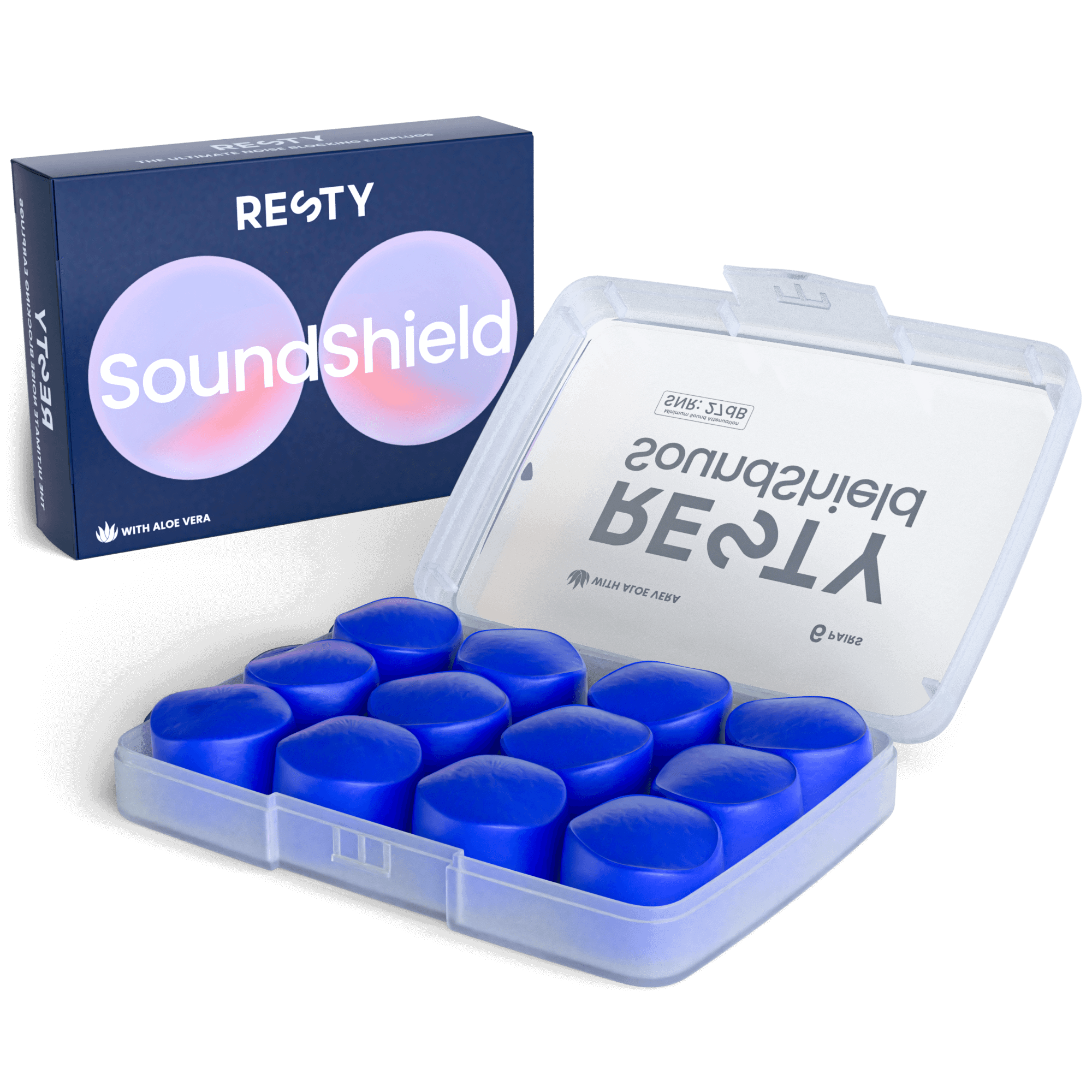
Why Skin-Friendly Materials Matter for Your Sleep and Breathing Products
A good night's sleep is essential for overall well-being, and the quality of sleep can be significantly influenced by the products we use, such as bedding, sleepwear, and breathing aids. It is crucial to consider the materials used in these products, as they can directly impact our skin and comfort during rest. The concept of skin-friendly materials in sleep and breathing products has gained importance in recent years, as these materials can enhance both sleep quality and skin health, resulting in a more comfortable and rejuvenating rest.
Why Skin-Friendly Materials Matter for Sleep and Breathing Products
Skin-friendly materials, by definition, are those that are gentle on the skin, hypoallergenic, and free from harmful substances. They play a crucial role in sleep and breathing products as they directly impact skin health and sleep quality.
One of the key connections between skin health and quality sleep lies in the reduced irritation and allergies that skin-friendly materials can provide. For those with sensitive skin or allergies, materials that do not cause irritation can significantly improve the quality of sleep by preventing itchiness, rashes, and discomfort during the night.
Enhanced comfort for sensitive skin is another important aspect of the connection between skin health and sleep quality. Skin-friendly materials, such as natural fibres or hypoallergenic options, can provide a soothing and gentle touch for those with skin conditions like eczema, psoriasis, or general sensitivity. This additional comfort can contribute to a more restful and rejuvenating sleep.
Alongside the benefits for skin health, skin-friendly materials also contribute to better breathability in sleep and breathing products. By promoting better air circulation, these materials can help regulate body temperature and maintain a comfortable sleeping environment. This is particularly important for those who may be prone to overheating or night sweats, as breathable materials can reduce the risk of becoming too warm during sleep and ensure a more comfortable and uninterrupted rest.
Types of Skin-Friendly Materials
When it comes to skin-friendly materials for sleep and breathing products, a variety of options are available to cater to different preferences and needs. These materials can be broadly classified into three categories - natural fibres, hypoallergenic materials, and breathable synthetics.
Natural fibres are a popular choice for skin-friendly materials due to their softness and breathability. Some common natural fibres used in sleep and breathing products include cotton, bamboo, and silk. Cotton is known for its softness, durability, and ability to regulate temperature, making it a versatile option for bedding and sleepwear. Bamboo, another natural fibre, is praised for its moisture-wicking properties and eco-friendliness. Silk, while more luxurious and delicate, is renowned for its smoothness and ability to reduce friction on the skin.
Hypoallergenic materials are designed to minimize the risk of allergies and skin irritation. Tencel, a type of lyocell made from eucalyptus wood pulp, is one such material that is gentle on the skin and environmentally friendly. Organic cotton is another hypoallergenic option, as it is grown without the use of harsh chemicals and pesticides, reducing the likelihood of skin irritation.
Breathable synthetics can also be a suitable choice for those seeking skin-friendly sleep and breathing products. Moisture-wicking fabrics, such as those used in athletic wear, are designed to draw moisture away from the skin, keeping you dry and comfortable throughout the night. Microfiber, a type of synthetic fibre, is known for its softness and ability to regulate temperature, making it a popular choice for bedding and sleepwear.
How to Choose the Right Skin-Friendly Material for Your Sleep and Breathing Products
Selecting the appropriate skin-friendly material for your sleep and breathing products involves considering several factors, such as personal needs, product type, and material quality.
First, assess your personal needs and preferences, including skin sensitivity and climate or temperature preferences. If you have sensitive skin, opt for hypoallergenic materials like Tencel or organic cotton to minimize the risk of irritation. For those living in warmer climates or prone to night sweats, breathable materials like moisture-wicking fabrics or bamboo can help regulate body temperature during sleep.
Next, consider the type of product you require. For bedding, materials like cotton and microfiber are popular choices due to their comfort and durability. Sleepwear can benefit from breathable materials like bamboo or moisture-wicking fabrics to ensure a comfortable night's rest. Sleep masks may require materials like silk or padded cotton for their smoothness and gentle touch on the skin. CPAP masks and accessories should prioritize hypoallergenic materials to minimize skin irritation and promote a comfortable fit.
Lastly, evaluate the quality and sustainability of the material. Look for certified organic materials, which are grown without the use of harmful chemicals and pesticides, to ensure a lower risk of skin irritation. Also, consider ethically sourced and produced materials that contribute to a more sustainable and eco-friendly sleep experience.
The Benefits of Investing in Skin-Friendly Sleep and Breathing Products
Investing in skin-friendly sleep and breathing products can yield numerous benefits that contribute to a more comfortable and restorative sleep experience. One of the most notable advantages is improved sleep quality and comfort, as materials that are gentle on the skin and breathable can help create a soothing and relaxing environment for rest.
Furthermore, these products can enhance skin health and reduce irritation, particularly for those with sensitive skin or allergies. By opting for hypoallergenic materials and natural fibres, you can minimize the risk of rashes, itchiness, and discomfort throughout the night.
Choosing skin-friendly materials also supports a lower environmental impact. Many natural and hypoallergenic materials, like organic cotton and bamboo, are grown and produced with sustainable practices that reduce the use of harmful chemicals and pesticides, contributing to a greener and more eco-friendly sleep experience.
Lastly, investing in high-quality skin-friendly products can provide long-lasting and durable solutions for your sleep needs. These materials are often designed to withstand regular use and washing, ensuring that your bedding, sleepwear, and other sleep-related items remain comfortable and effective for an extended period.
Frequently Asked Questions (FAQs) about Skin-Friendly Materials
When it comes to skin-friendly materials, several questions often arise regarding their properties, care, and suitability for specific skin conditions. We address some of these common questions below:
Are all natural materials automatically skin-friendly?
While many natural materials are gentle on the skin and offer breathability, it is essential to consider individual sensitivities and allergies. Some people may still experience irritation from certain natural materials. Always take your personal preferences and skin sensitivities into account when choosing sleep and breathing products.
How do I care for skin-friendly sleep and breathing products?
Each material may have specific care instructions, so it is essential to follow the guidelines provided by the manufacturer. In general, gentle washing methods and mild detergents are recommended for most skin-friendly materials to maintain their properties and longevity.
Can skin-friendly materials help with specific skin conditions, like eczema or psoriasis?
Yes, skin-friendly materials can provide relief and comfort for those with specific skin conditions, such as eczema or psoriasis. Hypoallergenic materials and natural fibres like organic cotton or silk can reduce friction and irritation on the skin, promoting a more comfortable and soothing sleep experience.
Unlock Better Sleep and Well-being
The significance of skin-friendly materials in sleep and breathing products cannot be overstated. They play a crucial role in enhancing sleep quality, promoting skin health, and ensuring overall well-being. By investing in high-quality, skin-friendly products, you can experience improved sleep, reduced irritation, and the added bonus of a lower environmental impact. Explore Resty Store's range of products designed with your comfort and well-being in mind, and unlock the benefits of a restful and rejuvenating sleep experience.


















